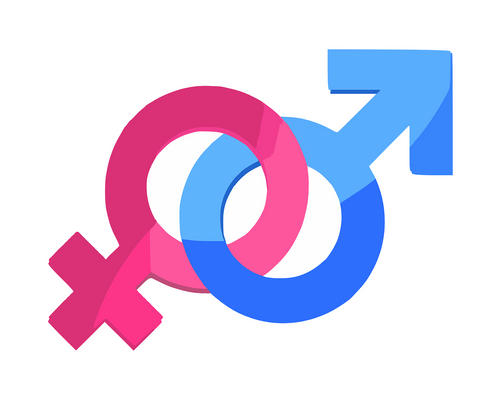7.3.1
Introduction to Feminist Criticism
Central Ideas in Feminist Literary Criticism
Central Ideas in Feminist Literary Criticism
Feminist criticism is based on ideas from the feminist movement.


Core focuses of feminist criticism
Core focuses of feminist criticism
- Feminist criticism focuses on power relations, particularly the unequal power relations between men and women.
- It examines notions of gender and the extent to which ideas of what constitute masculinity or femininity have been constructed.
- The next slides show central ideas of feminist thinking.


Negative stereotyping of women
Negative stereotyping of women
- Literature reflects, and helps to perpetuate, the negative stereotyping of women. Women are stereotyped from a male point of view in ‘positive’ ways, such as the 'self-sacrificing angel' or in ‘negative’ ways such as the 'dangerous seductress'. These stereotypes promote the idea that female behaviour should be more passive and powerless, preventing equality between the sexes. Feminist criticism often looks to challenge these stereotypes.


Gender roles are constructured
Gender roles are constructured
- Gender roles have little to do with how females (and males) really are, but with the way that society sees them - how they are culturally constructed.
- The notion of women being naturally 'timid' or 'helpless' is to construct a role for them.
- Likewise, masculinity, with its connotations of strength and control is also a construction.
- Feminist criticism often looks to challenge the assumptions that lead to these constructed (artificial) ideas of how men and women ‘should’ behave.


Texts reflect patriarchy
Texts reflect patriarchy
- Texts, even those written by women, often reflect and reinforce patriarchal authority (a society in which men hold the power).
1Introduction
2Plot Summary
2.1Act 1: Key Events & Ideas
2.2Act 2: Key Events & Ideas
2.3Act 3: Key Events & Ideas
2.4Act 4: Key Events & Ideas
2.5Act 5: Key Events & Ideas
3Character Profiles
3.1Hamlet
3.3Gertrude
3.4Ophelia
4Key Themes
4.1Regicide in Hamlet
4.2Madness in Hamlet
4.3Guilt & Punishment in Hamlet
4.4Settings in Hamlet
5Writing Techniques
6Context
6.1Social & Historical Context
6.2Literary Context
6.3Performance & Textual History
7Critical Debates
7.118-19th Century Responses to Hamlet
7.220th Century Responses to Hamlet
7.3Feminist Readings of Hamlet
7.4Marxist/Political Readings of Hamlet
Jump to other topics
1Introduction
2Plot Summary
2.1Act 1: Key Events & Ideas
2.2Act 2: Key Events & Ideas
2.3Act 3: Key Events & Ideas
2.4Act 4: Key Events & Ideas
2.5Act 5: Key Events & Ideas
3Character Profiles
3.1Hamlet
3.3Gertrude
3.4Ophelia
4Key Themes
4.1Regicide in Hamlet
4.2Madness in Hamlet
4.3Guilt & Punishment in Hamlet
4.4Settings in Hamlet
5Writing Techniques
6Context
6.1Social & Historical Context
6.2Literary Context
6.3Performance & Textual History
7Critical Debates
7.118-19th Century Responses to Hamlet
7.220th Century Responses to Hamlet
7.3Feminist Readings of Hamlet
7.4Marxist/Political Readings of Hamlet
Unlock your full potential with Seneca Premium
Unlimited access to 10,000+ open-ended exam questions
Mini-mock exams based on your study history
Unlock 800+ premium courses & e-books